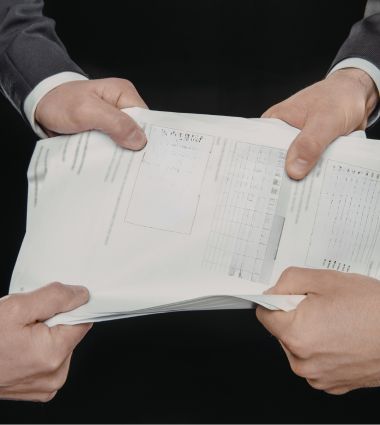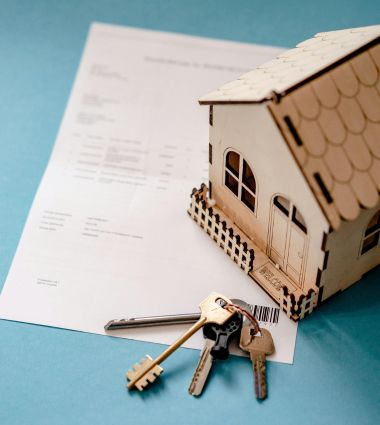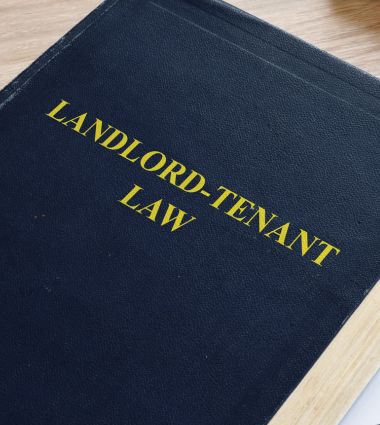Who Signs First When Closing a Real Estate Deal in Canada?
When closing on a home in Canada, clarifying the signing order is the most important thing. Should the buyer or the seller sign on the dotted line first?
It's a common question that can leave both buyers and sellers scratching their heads. A smooth closing depends on understanding the signing order at closing, regardless of whether you are a first-time buyer or a skilled investor.
In this article, we'll answer the ‘who signs first when closing a real estate deal in Canada’ question and the typical process for real estate closings in Canada, specifically focusing on who puts pen to paper first. We'll also explore why the order matters and what you can expect when it's finally your turn to sign.
Ready to demystify this critical step in your home-buying journey? Let's dive in!
Overview of Real Estate Transaction Closings in Canada
When you're closing a real estate transaction in Canada, it's like the grand finale of a property purchase. Picture this: you've found your ideal home, negotiated the price, and now it's time to make it officially yours.
But how does it all come together?
The Lawyer's Role
In Canada, a real estate lawyer plays a starring role on closing day. They're like the conductor of an orchestra, managing the exchange of documents, and funds, and making sure everything's just in tune. Your lawyer will be busy finalizing legal documents, including the all-important title transfer and mortgage agreements.
Preparing Your Finances for Closing Day
As a buyer, you'll need to have your finances ready for the big day. This includes your down payment and those annoying closing costs. Your lawyer will help you guide this part of the real estate transaction, ensuring all the funds are in place to "close" on the property.
Whether you're buying or selling, your real estate lawyer is there to walk you through every step. They’ll check all the details before you sign the closing papers, acting like a legal safety net to help your property deal go smoothly.

The Role of Real Estate Lawyers in a Real Estate Transaction
When you're closing a real estate transaction in Canada, an expert real estate lawyer plays the most important part in the process. Their goal is to guarantee that every note in a property symphony is in tune, like concert conductors.
Paperwork Perfectionists
A real estate lawyer is the one who prepares or reviews all the paperwork involved in the property deal. They're not just pushing papers around - they're making sure everything is legally valid. It's like having a personal proofreader for one of the biggest decisions of your life.
Guardians of Property Transfer
The main job of your lawyer is to ensure the legal transfer of property from the seller to you, the buyer. They're like the referees in a high-stakes game, making sure everyone plays by the rules. Whether you're the one buying or selling, your lawyer's got your back.
Closing Day Heroes
Although real estate lawyers are needed throughout the transaction, on closing day, your real estate lawyer really shines. They'll be there to guide you through signing the closing documents, explaining any legal double-talk that might show up last minute, and answering your questions. They act more like having a translator who speaks 'legalese' right by your side.
A real estate lawyer can represent your interests whether you're a buyer, seller, or even a lender. They're the unsung heroes of the real estate world, making sure your dream home doesn't turn into a legal nightmare.
What Happens on Closing Day?
Closing day is when all the excitement of buying a home comes to fruition. It's the day you've been waiting for when you finally get the keys to your new place. But what exactly goes down on this big day?
The Property Handover
On closing day, the property officially changes hands. You, as the buyer, become the proud new owner. The seller hands over the keys, and just like that, you're ready to start your new chapter. It's a bit like passing the baton in a relay race but with a lot more paperwork!
Money Matters
This is when the funds start moving. Your lawyer transfers the money from escrow to the seller. You'll need to pay any remaining closing costs, which might include lawyer fees, land transfer taxes, and other expenses — the grand finale of a financial fireworks show!
Paperwork
Get ready to flex those signing muscles! Both the buyer and seller will be putting pen to paper quite a bit. You'll be signing mortgage documents, title transfers, and other legal papers. Your real estate lawyer will be there and guide you through this process, making sure everything's in order.
The order of who signs first in a real estate transaction can vary. Sometimes the seller signs before the buyer, other times it's the reverse. Your lawyer will let you know when it's your turn to sign the closing documents.

Who Signs the Documents First - Buyer or Seller?
When closing a real estate deal in Canada, you might wonder who puts pen to paper first. Let's break it down for you.
The Order of Signatures
Normally, the seller signs the documents before the buyer. This is because the seller must confirm their intention to transfer ownership of the property. The documents signed by the seller include the deed, which officially transfers the title to the buyer. The seller’s signature basically sets everything in motion, signalling that they are ready to complete the sale.
This initial step might seem straightforward, but it’s important. The seller’s lawyer will often draft the necessary documents, review them with the seller, and then arrange for them to be signed. This can happen a few days before the actual closing day, giving everyone time to make sure all paperwork is in order.
Once the seller has signed, it’s the buyer’s turn. The buyer’s role involves signing several key documents, including the mortgage agreement (if applicable), the deed transfer, and any other necessary paperwork related to the purchase. This part of the process usually occurs on the closing day itself.
The buyer’s lawyer will carefully review all documents, explaining each one before asking for a signature. This helps the buyer feel confident and informed about what they are signing. Once the buyer has signed, the documents are returned to the seller’s lawyer for final processing.
The Final Steps
After all the signatures are in place, your real estate lawyer takes care of the remaining steps. They’ll ensure that everything is properly filed and recorded in the land registry, finalizing your ownership — completing that last piece of a puzzle — now, your ownership is officially on record.
Every real estate transaction is unique. Your lawyer will guide you through the process, making sure you understand each document before you sign. This is an integral part of the journey toward becoming a proud property owner in Canada.
Other Key Steps in the Signing Process
While the signatures are important, there are other tasks to address during the signing process.
Closing Costs: What Buyers and Sellers Need to Know
When you're closing a real estate transaction, it's not just about signing on the dotted line. There's a whole bunch of costs that pop up, and they can catch you off guard if you're not prepared.
For buyers, you've got things like land transfer taxes, legal fees, and sometimes mortgage insurance. It's like going to a restaurant and realizing there's a bunch of extras on the bill you didn't expect. Your real estate lawyer can give you a heads up on what to expect, so you're not scrambling at the last minute.
Sellers, you're not off the hook either. You might be on the hook for things like real estate commission, mortgage discharge fees, and maybe even capital gains tax if it's not your primary residence. It's like when you're moving out of an apartment and realize you've got to pay for all those little nail holes in the walls.
Both buyers and sellers should chat with their real estate lawyer well before the closing date. They can break down all these costs for you in plain English, so you're not hit with any surprises when it's time to sign the closing documents.
The Importance of Timing in Real Estate Closings
Timing is critical in real estate transactions. All parties involved must meet specific deadlines to ensure that the sale goes through smoothly.
Key Deadlines
Signing Deadlines: The buyer and seller must sign all documents by the closing date. If one party misses a deadline, the closing could be delayed or even jeopardized.
Funding Deadlines: The buyer’s lender must provide the funds on time to ensure that the seller is paid and the transaction is completed.
Registration Deadlines: The property must be registered in the buyer’s name promptly after the signing. Any delays in registration can cause complications down the line.
Managing Expectations
Both buyers and sellers should manage their expectations when it comes to timing. It’s important to understand that while the process is generally straightforward, unexpected issues can arise.
Working closely with your Ontario Real Estate Lawyer and maintaining open communication can help manage any surprises that come up. Trust us, it's way better to know what you're in for ahead of time!
Wrapping things up, the signing process in a Canadian real estate deal might feel a bit puzzling, but it usually follows a pattern where the seller signs first. It’s easy to get caught up in the details, but remember that the main goal is ensuring all the paperwork is signed correctly. Your real estate agent and lawyer are there to help you guide the process, explaining each step clearly.
If you’re ever unsure about something — like a term in the contract or the timeline — don’t hesitate to ask questions. Sharing your concerns not only clarifies things for you but also helps your team address any issues before they arise.
With their guidance, you’ll feel more confident as you approach closing day. Before you know it, you'll be standing in front of your new home, keys in hand, ready to create lasting memories.
Frequently Asked Questions about Who Signs First When Closing a Real Estate Deal
Does it matter who signs first in a real estate transaction?
In most cases, it doesn't really matter who signs first when closing a real estate deal. The order of signing is more about convenience than legal requirements. That said, it's common for the seller to sign before the buyer. This allows the buyer to review all the signed documents before adding their signature.
What happens if the buyer signs before the seller?
If the buyer signs first, it's not a big deal. The real estate transaction isn't complete until both parties have signed. Yet, some buyers prefer to wait until the seller has signed to avoid any last-minute changes or issues. Your real estate lawyer can advise on the best approach for your situation.
Can the signing order affect the closing date?
The signing order generally doesn't impact the closing date. What's more important is that all parties complete their required tasks on time. This includes the buyer securing financing, the seller clearing any liens, and both sides reviewing and approving all documents. Good communication between all parties helps keep things on track.
Real Estate
Family Law
Wills & Estates
Immigration
Join Our Mailing List.
Sign up with your email to receive our newsletter and stay informed about the latest legal developments and special offers.



















































































